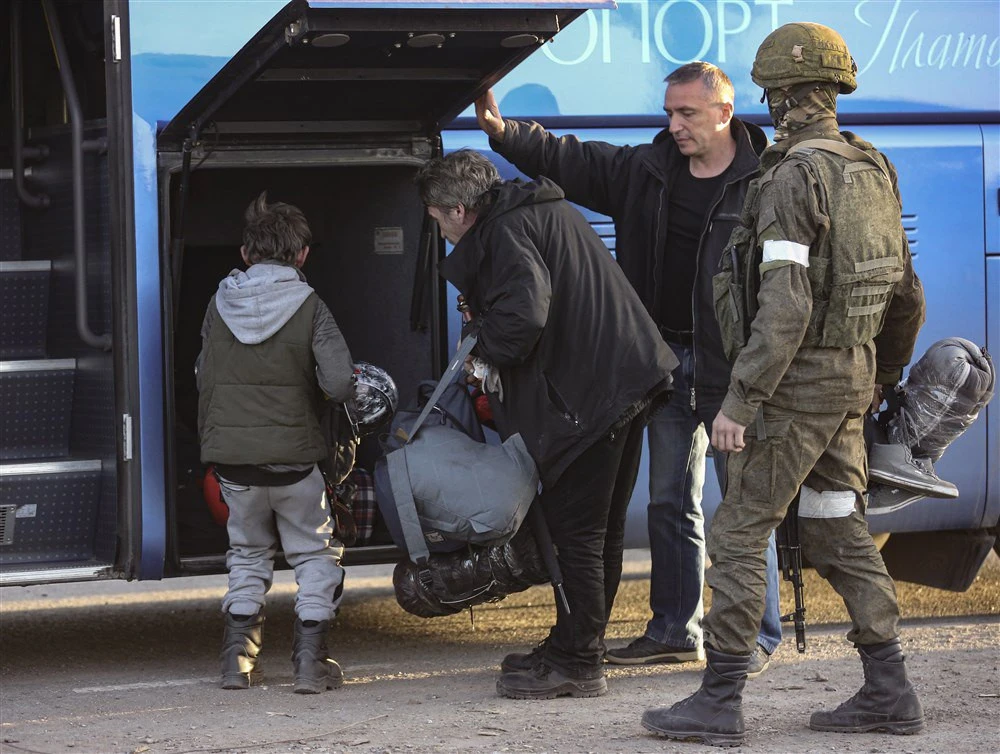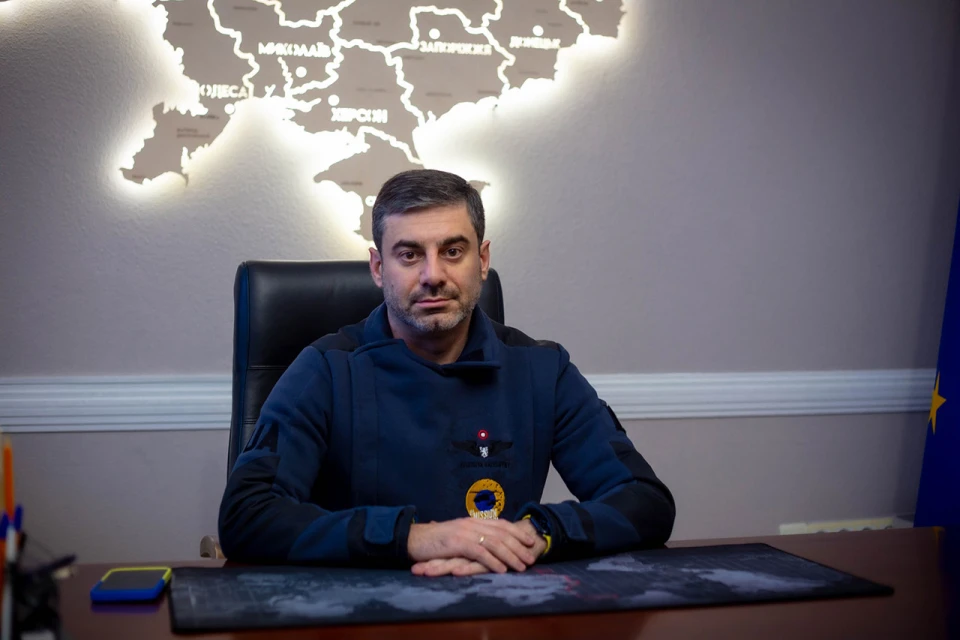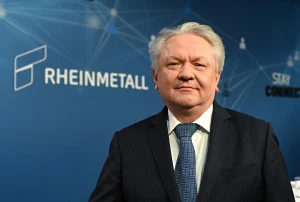
How Russia deports thousands of Ukrainian children, erases their identity and forcibly militarizes them
As of early August 2023, Russia deported over 19,000 Ukrainian children, but actual figures, as per Ukrainian authorities, exceed this greatly. Just 386 kids have been reunited with their families
LB writes about this.
Reports reveal Russian camps and foster homes attempting to erase their identities, all while earning up to USD 1,700 per child.
Part of the “re-education” process of Ukrainian children involves instilling militarization from kindergarten onward. In occupied Crimea, memorial plaques honoring soldiers killed in alleged military operations are being set up, including those who were minors during the 2014 occupation.
"There are a lot of boys, in fact children, who were still minors at the time of the occupation of the peninsula in 2014. And now they are dead. This is the so-called vicious cycle of militarization of children in Russia," the Ukrainian Prosecutor General's Office said.
Ukrainian Parliament Commissioner for Human Rights, Dmytro Lubinets, has appealed to UN Special Representative Virginia Gamba to secure lists of Ukrainian children deported by Russia. Russia's Ombudsman for Children's Rights, Maria Lvova-Belova, disclosed over 700,000 children taken from Ukraine in 2022. This practice began in 2014, making exact figures elusive but unquestionably higher than official counts.
As of August, 19,546 displaced minors were registered on the Children of War portal. Children from orphanages in Kherson were among those forcibly removed. Many were taken from occupied territories, their whereabouts unknown. Some parents consented due to threats or false promises of rehabilitation.
"These figures are consistently on the rise. Our responsibility involves scrutinizing each child's data. Understandably, during times of conflict, locating relatives, parents, and evidence of forced displacement becomes exceedingly challenging. Typically, this occurs in occupied territories, where access remains limited. Russia avoids disclosing the genuine count of affected children. While they term it 'evacuation,' we are fully aware that it amounts to deportation or forced displacement," explained Yulia Usenko, head of the Department for the Protection of Children's Interests at the Prosecutor General's Office, in conversation with LB.ua.
Daria Herasymchuk, Advisor to the Presidential Commissioner for Children's Rights, noted over 70 camps in Russia housing Ukrainian children. The Prosecutor General's Office confirmed this, “Numerous camps are scattered across the Russian Federation, primarily focused on the re-education and reshaping of children's perspectives. These camps span the entirety of Russian territory, including some within the temporarily occupied Crimea and extending to the Far East, thousands of kilometers from the Ukrainian border. Although geographically diverse, they share a common trait, as attested by international researchers and returned children: an intensive and purposeful 'education' regimen aimed at assimilating Ukrainian children into Russian society. They all work under the same programs. This policy is clearly organized. Their goal is to convince children that Russia is saving them. Ukraine is not a state, and soon it will not exist at all. They talk about the greatness of Russia, the future in this great empire, that their life is only possible there. These are exactly the narratives that are being imposed on children,” the department head told LB.ua.
Though some children may arrive with Ukrainian caregivers, the camps' staff and instructors are Russian, teaching allegiance to the "Russian world".

Forced child militarization in Russian camps and schools
In his annual report to the Verkhovna Rada, Ombudsman Dmytro Lubinets highlighted the concerning trend of militarizing education and military training among Ukrainian children in Russian camps, schools, and adoptive families. He recently stated that "the terrorist nation has established tent military camps for registered children, where they undergo military and tactical training."
This militarization approach has been in place since 2016 when the Yunarmiya (Young Army) was established, integrated into the education system at all levels. “Starting with kindergartens, where young children are dressed in military uniforms to participate in parades or other events. The older the children, the stronger this emphasis. They have separate cadet, Cossack classes and other types of militarized formations in school and extracurricular education. There are also separate military camps. But the idea is the same. To re-educate children to fight against Ukraine," says Usenko.
The study by Almenda CCE revealed the installation of memorial plaques in occupied Crimea for minors who died during the 2014 occupation, highlighting the tragic cycle of child militarization in Russia.
The Office of the Prosecutor General of Ukraine disclosed that since the annexation of Crimea, around 37,000 Ukrainians, including many who were not yet adults, have been unlawfully mobilized into the Russian armed forces. Special camps have emerged in occupied eastern and southern regions, training over 800 men for service in Russia's military.
The Verkhovna Rada's Defense Committee confirmed reports of forced mobilization, describing instances of coercion, psychotropic substance use, and threats by Russian captors. "Men are forcibly mobilized and sent to the so-called 'detachments' together with Russian convicts. They are often forced to use psychotropic substances, threatened with being executed by Russians," according to the committee's representative, MP Mariana Bezuhla. The Prosecutor General's Office categorizes these acts as war crimes. There are already several court verdicts sentencing "military commissars" to 12 years in prison. Relevant materials have also been reported to the International Criminal Court in The Hague.
Russian adoption: monetary incentives and manipulative tactics
Russian families are financially incentivized with up to USD 1,625 per month for each Ukrainian child adopted. Presently, only 386 children have been repatriated.
"Recently, they have been returning status children (orphans or children deprived of parental care - Ed.). I remember a minor boy from the Kharkiv region who was forced by the Russian military to change into a military uniform and taken to the territory of the Russian Federation. The process of securing his return was arduous," Usenko said.
Russians targeted the boy due to his age (16 years old) as the eldest in the family-style orphanage. Upon entering the occupied territory, the teenager underwent a process of "cleansing," where Russian officials questioned individuals to identify those sympathetic to Ukraine.
"Children are frequently apprehended under the pretext of having exposed the Russian armed forces’ positions. Fortunately, we were able to secure the return of this particular boy, who spent approximately 10 months in Russia. Typically, during this period, there's an attempt to expedite the child's adoption into a family through an accelerated procedure (detailed coverage can be found on LB.ua). The teenager recounted his exposure to propaganda aimed at enlisting him into the Russian military, as well as persistent efforts to impose Russian citizenship and a perspective that Ukraine is a nonexistent state."
Russian families receive substantial financial incentives for adopting Ukrainian children, with payments ranging from RUB 28,000 to RUB 156,000 per month.
There have been instances wherein families from distant regions such as Siberia have collectively adopted groups of 10-12 Ukrainian children. Dmytro Lubinets remarked in an interview that, "In reality, it’s a business venture for them."

While statistics on children obtaining Russian passports are scarce, those returned often report acquiring Russian citizenship. This procedure takes just three months, regardless of the child's wishes, illustrating Russia's intent to assimilate them into its society.
Russian tactics involve manipulating children's perceptions of Ukraine through "preventive conversations," inducing clichés such as "there are Nazis in Ukraine," "Kyiv will be wiped off the map," "you have nowhere to go back to," "we have a big country, lots of people and jobs," and "you have to love Russia." This is especially prevalent among children who have lost parents, capitalizing on their vulnerability.
“But our children are our children. They react to this absolutely negatively. Even those who do not have parents say that they wanted to return to Ukraine," says the head of the department of the Prosecutor General's Office.
Though domestic violence within Russian families is undocumented, reports suggest punitive measures within camps, including physical punishment and confinement. "One guy from the Kherson region said that children were beaten with sticks for their behavior. Some were locked in basements, in separate rooms. No cases of sexual violence were recorded," she added.
Child Protection Center and the Barnahus model
The Child Protection Center, established on June 1, 2023, under Ombudsman Dmytro Lubinets, focuses on aiding returned families and children. Legal support, medical examinations, temporary housing, and social-psychological rehabilitation are offered. Utilizing the Barnahus model, this approach minimizes the need for repeated child interrogations by law enforcement, preventing additional psychological trauma. Given the unique needs of children who've experienced Russian violence and assimilation, this tailored approach ensures their well-being.
Iryna Suslova, representative of the Ombudsman for Children's Rights, explained, "They also conduct audio and video recordings of children's interviews with a psychologist about all war crimes committed against them by high-ranking officials and military personnel of the Russian Federation in the territory not controlled by Ukraine and in Russia." The process involves interviewing children once, jointly with the Security Service of Ukraine and the Prosecutor General's Office, utilizing two rooms—one for the child's direct interaction with a psychologist, and the other for an investigator who oversees the process online. Questions are communicated between the investigator and the psychologist, reducing emotional distress. The recorded materials are then submitted to national and international courts.
By August 2, 2023, the center had interviewed 12 returned children who witnessed Russian war crimes or were deported from occupied territories to Russia.
Among these cases are siblings Renat (6 years old) and Varvara (10 years old), who were separated from their parents by occupation authorities. The father, a soldier, was killed in defense of Mariupol, while the mother, a combat medic, was captured and later released during a prisoner exchange. The children were finally reunited with their mother in July 2023.
"There were a lot of hugs and tears. They were happy to be together, but sad because their dad was not there - he died defending Mariupol," the center recalls.
Another boy from Mariupol, who had lost his parents, was detained, interrogated, and forcibly taken to Russia. “Representatives of the occupying country tried to assimilate the teenager in every possible way. He shared how they kept reminding him that his home was now a ‘tricolor’ and that he would have to think and dream ‘accordingly’,” LB.ua reported.
Through resourcefulness, he managed to return to Mariupol and later relocated to Kyiv. His experience serves as further evidence of Russia's harmful policy toward Ukrainians and contributes to cases presented before the International Criminal Court.
Remarkably, an adoptive family in Kherson's Kakhovka district welcomed two teenage sisters prior to Russia's aggression. With the occupation, the adoptive mother sought help from the Kakhovka District State Administration's Service for Children to evacuate. Simultaneously, two other sisters were at the Radist Center for Social and Psychological Rehabilitation of Children under the Kherson Regional Council's care. Immediate rescue was vital, given the risk of illegal transfer and deportation by Russian authorities.
In June 2023, the foster mother of the initial sisters was temporarily appointed as guardian for all four girls. This enabled their safe return to Ukrainian-controlled territory, preserving their well-being.
Pursuit of justice on national and international scales
The Office of the Prosecutor General of Ukraine is meticulously documenting these events within a comprehensive criminal proceeding that addresses the unlawful deportation and forced displacement of children. Parallel proceedings are also initiated in de-occupied areas upon request from the children's families.
"We initiate preliminary investigative actions with the complainants. Subsequently, we consolidate these cases, as they constitute a substantial war crime under Article 438 of the Criminal Code. Our goal is to construct a well-defined and cohesive framework of accountability, ensuring that all individuals implicated in the planning, orchestration, and direct perpetration of these offenses face appropriate consequences," stated Yulia Usenko, the head of the Prosecutor General's Office Department for the Protection of Children's Interests.
The Prosecutor General's Office is collecting evidence to prove the crime of genocide, which includes the forced transfer of children from one human group to another. "The outlined policy of the Russian Federation towards Ukrainian children clearly demonstrates one of the elements of genocidal policy. Our goal is to return the children and bring to justice all those involved in the commission of international crimes against Ukrainian children," assured Usenko.
- News










































